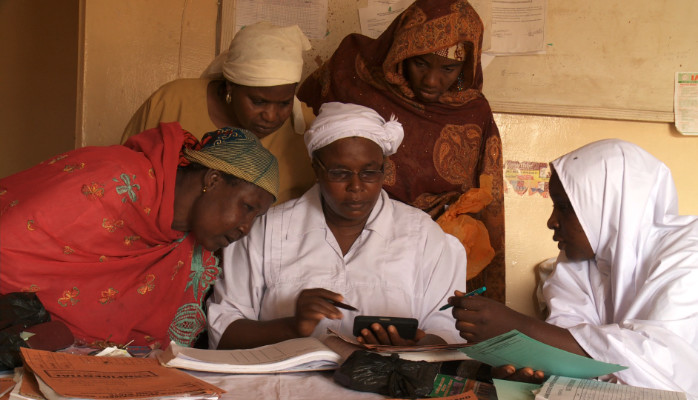
Introducing ORB: aiming to transform learning for frontline health workers
Every day, more than 800 women and 17,000 children die from preventable causes, often related to pregnancy and childbirth. It’s a tragedy for them, and a disaster for their families. It’s the equivalent of 44 planes full of women and children crashing with no survivors. Every single day of the year.
It’s not that people aren’t paying attention. Billions of dollars are pouring into efforts to tackle the challenges and inequities that lead to such dark statistics. Governments, NGOs, donors, the private sector and others are delivering programs in most of the poorest countries in the world, and progress is being made. But not fast enough and not at scale.
Why, despite all the effort and money invested, aren’t we having greater impact? The reasons are many and complex.
This post touches briefly on what I believe to be one of the core elements. It’s linked to the vast army of women and men who try, on a daily basis, and in often harsh circumstances, to improve the health of their communities. They are the frontline health workers.
For most women and children in developing countries, these frontline health workers are their first and often only link to the critical and primary health care that can save lives.
Yet all too often, many frontline health workers lack the training, information, and support they need to do their jobs effectively. Training is constrained by a lack of high-quality relevant resources available for frontline health workers and the trainers themselves are often not supported. The consequence of this severe under-training contributes to the relentless numbers of women and children under five who continue to needlessly die for lack of simple health interventions from a skilled frontline health worker.
Mobile – training in your pocket?
With an exponential increase in the number of mobile phones and services worldwide, there are compelling examples of how frontline health workers, using mobile technology, impact on the health of individuals in their communities: providing targeted, timely health messages to a pregnant woman delivered through audio or video; influencing health behaviors such as hand washing or exclusive breastfeeding, and using diagnostic tool-kits to correctly identify danger signs in young children, thus preventing unnecessary deaths.
Mobile technology also has the power to transform the way huge numbers of frontline health workers are trained. Mobile health (mHealth) offers unprecedented opportunities for frontline health workers to listen, learn, and teach, using creative and multimedia health content that goes beyond a simple text message. Providing training content and vital information on mobile phones is already happening. But other than a few notable examples, it’s just not happening at scale. And in the main, the content that’s created is not shared with the global audience, leading to duplication of effort, project by project.
ORB: mobile learning that goes the distance
mPowering Frontline Health Workers is committed to accelerating the use of appropriate mobile technology to help improve the performance of frontline health workers. We aim to dramatically improve the quality of content for health workers and to exponentially increase their access to the information they need to save lives and improve the quality of lives in the communities they serve.
Today, June 1, as part of that commitment, mPowering launches ORB.
ORB responds to a global demand from trainers, health workers, and policy makers for improved access to mHealth training content. Focusing on child and maternal health, including nutrition and family planning, ORB uniquely brings high-quality health content, optimized for use on mobile devices, onto a single platform, where it can be saved for viewing or sharing offline. Through internet-enabled mobile devices, Bluetooth connections, satellite broadcast and other means of mobile content distribution, relevant, timely training materials and information can reach hundreds of thousands of health workers across the world.
ORB is free to use, and available today at www.health-orb.org. The site currently holds more than 200 resources covering family planning; antenatal care; labor and delivery; newborn care; child health; and nutrition. We encourage users to view, share, and adapt the content on the site; and we welcome submissions of new content. ORB will continue to grow its library of high quality materials (reviewed and approved by a Content Review Team and Medical Expert Panel) to become the ‘go to’ for digital health content.
If you want great training content, no need to Google it – just ORB it!
At mPowering, we passionately believe that ORB will help frontline workers access the knowledge they need to transform health outcomes for millions of women and children. Visit ORB today to explore the content; and contact mPowering to learn more.
mPowering is a public-private partnership of 17 organizations, supported by the United States Agency for International Development (USAID). Our vision is a trained and skilled frontline health worker for every woman and child.
Consultant | Strategy | Social Policy | Results-Based Management | Programme Design, Monitoring & Evaluation | Trainer
6yGreat approach and collection. Looking forward to trying out some of the content. Thank you!